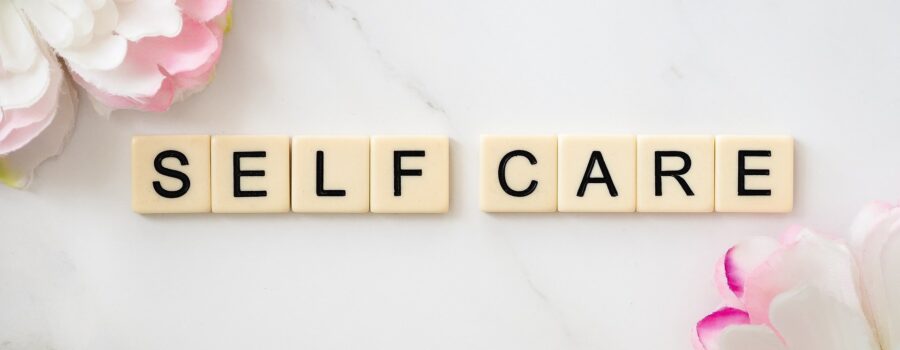Patients will ask, “How do I keep going without feeling burned out or angry at others?” and “How do I find gratitude and joy in my day to day life?” “How do I give my best self to myself and others?”
We repeatedly hear about the importance of self-care. We hear it in the news, we read about it in books, and we see it on social media illustrating this concept of self-care. Is getting my nails done part of self-care? Is spending time with friends and family part of self-care? As a mother of an 18th month old, and juggling dozens of hats, I’ve constantly asked myself, “What does self-care actually mean?” I want to discuss self-care as an idea to energize and fuel our soul to create long lasting fulfillment in our daily lives. I want to explain how we can shift our perception of self-care from being another “task” to a mental and practical way that is sustainable. In essence, self- care is how we take care of ourselves to keep our mental health stable and be less vulnerable to depression, anxiety, and burn out.
When our mental health is vulnerable and we feel overwhelmed, we start to consider the concept of “self-care.” We may notice an increase in irritability, trouble sleeping and restless in our own skin. When we are overwhelmed and stressed, the hormone Cortisol is released and our body responds by feeling tense, tight, stomachaches, and headaches. If we are constantly stressed and this hormone is flooding our body, we must counter it somehow, in a healthy way. There are daily activities that have a calming effect. Activities such as deep breathing, meditation, exercise and mindful awareness are ways that help our bodies calm down. When we engage in these activities, they balance out the stress hormones and turn on dopamine hormones, also known as feel good hormones. We want more naturally induced dopamine in our body.
There are two ways to approach self-care. One is the mindset we hold about self-care and the other is the practical side. Our personal mindset consists of our beliefs and ideas about self-care. Our childhood and past experiences contribute to those beliefs about our emotional well-being. Some people feel guilty and think self-care is selfish. Some people did not grow up with the concept of emotional well-being and find the concept of self-care as foreign. The feelings of guilt can drive people away from themselves. For example, mothers are susceptible to feeling guilty when their kids take precedence or are very young in age. When I first became a mother, all my thoughts and time were about my new baby. I had a difficult time thinking of myself outside of the daily needs of this new baby. The pressure I put on myself added to the stressors of breastfeeding and sleepless nights. It wasn’t until my sister-in-law bought me a body scrub that I started to pay attention to myself in the shower. The smell of the scrub helped take my mind away and my shower became my golden time and only time I had for myself for the first few months. This is when I started to realize that taking time for myself was not only important but needed to keep a healthy and sound mind in the new stages of motherhood. I now understand the extent a mother sacrifices herself for her children and how easy it is to ignore ourselves and our needs.
The mindset of self-care is also our internal dialogue with ourselves daily. Do we give ourselves encouragement as we would to our friend? Do we have a nurturing and compassionate voice that speaks to us when we are tired and need to slow down? Or do we have a critical voice that reminds us about all the things that did not get done today? Finding a voice that will encourage us, and motivate us is key in our daily self-care. It means we are taking the time to appreciate ourselves and not beat ourselves up for what did not happen. This will help sustain our mental health instead of draining us and making us feel defeated.
Let’s talk about the practical side of self-care.
You may be asking, so what does self-care look like? It is designated time? Is it one hour a day or two hours? Personally, in the past, it used to be designated days or times where I would tell myself “this is your time, do whatever you want.” I was waiting for Friday to relax, or the weekend to rest when my toddler continued to wake up between 6:30-7:00am every day. My personal frustration occurred when that designated time did not come to fruition and I would be left without “time.”
Most people cite “lack of time” as the reason they do not engage in self-care. I completely understand. From morning to night, we can be nonstop and left without energy or time. The key is how we incorporate it in our day to day life. Remember, small daily doses of dopamine helps keep us sustainable and balances out the cortisol hormones. Ideally, we will get small daily doses and a designated time to engage in one self-care activity such as a hair or nail appointment, hanging out with friends, or exercise routine. Imagine those designated times as bigger bursts of dopamine at once, which is why a shopping outing can feel fun and positive for a while and then disappears or loses intensity.
What I want to propose is this…. Have small daily doses of moments that are relaxing, that move your body, and that feel like fuel. Ask yourself, what makes your soul happy? What re-energizes you? And how can we incorporate it in our day to day lives?
I encourage you to look at your day to day structure and start small. It could be your warm cup of coffee in the morning, and if you love coffee it can be finding different ways to create your ideal cup. It is capturing the moment of a positive moment, of a time with yourself to start your day. It can be your makeup routine, your drive to work, your quiet time while the kid(s) naps, organizing, or listening to music or podcast as you clean. Once you start building these self-care routines in your day to day life, you are more likely to keep it sustainable, be more productive, have extra energy, and continue to be the best versions of yourself in a consistent manner.
Therefore, it’s important to remind ourselves that if we fill our glass every day, we will counter the Cortisol hormone and increase our dopamine hormones, which will translate to more joy, more gratitude, and more peace in the everyday moments life gives us.
Best,
Evelin Lemus, LMFT





Recent Comments